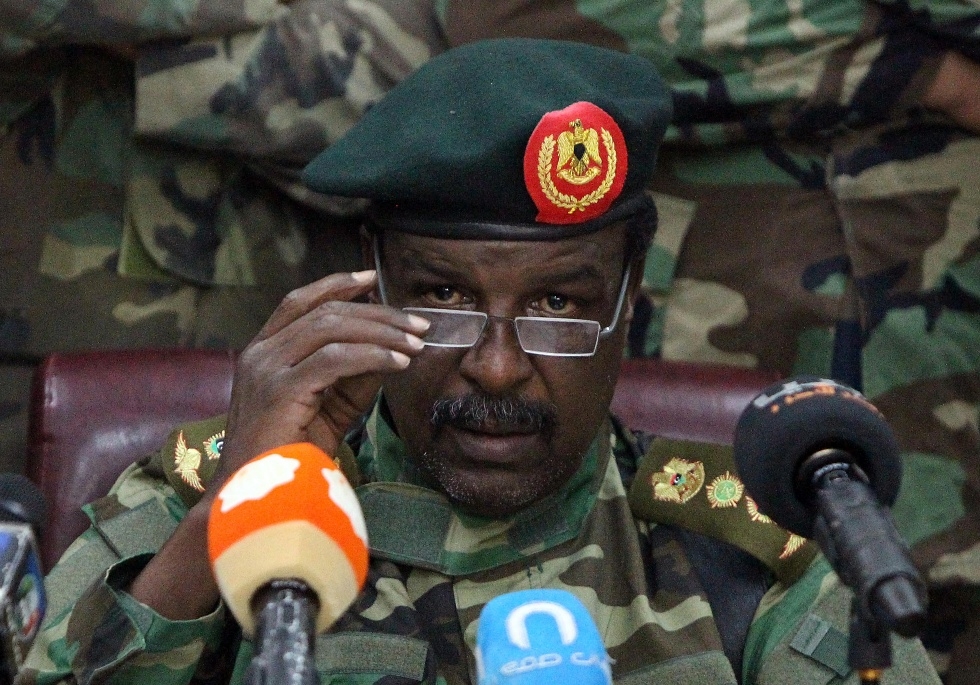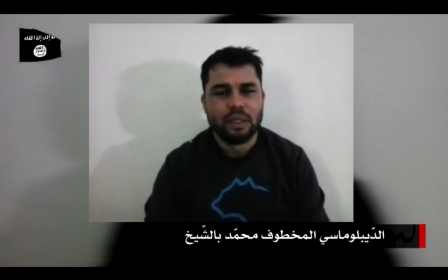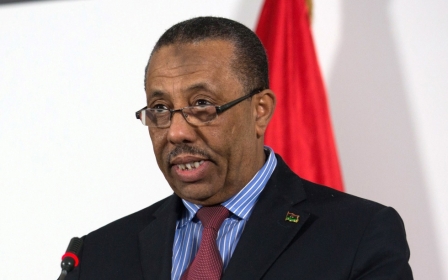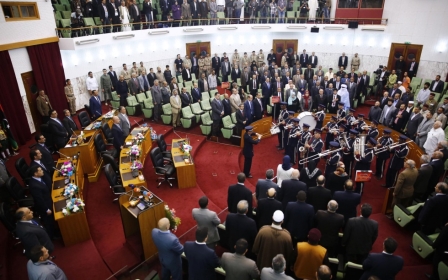Elite Libyan commander pledges allegiance to rogue general

An elite Libyan unit's commander said on Monday his troops were joining paramilitaries in the eastern city of Benghazi commanded by a retired general who has vowed to eradicate "terrorism".
"We are joining the battle of 'dignity' launched by the Libyan National Army with all our men and weapons," said Colonel Wanis Abu Khamada, of the name given to the operation launched by Khalifa Haftar.
Haftar unleashed his forces against Islamist militias in the country's second city on Friday. While Haftar’s forces are called the National Army, they are not to be confused with the official state military, and much controversy has surrounded the interplay and collusion between the two forces.
Tripoli accuses him of trying to mount a coup, but Haftar has said he was responding "to the call of the people" to defend them against "terrorists".
"The battle will continue until terrorism is eradicated," added Khamada, who is widely respected in Libya, especially in Benghazi.
New MEE newsletter: Jerusalem Dispatch
Sign up to get the latest insights and analysis on Israel-Palestine, alongside Turkey Unpacked and other MEE newsletters
Parliament attack
The announcement follows on from remarks made by Col. Mohamed al-Hegazi, a spokesman for renegade Haftar, who also said on Monday that the attack on parliament headquarters in capital Tripoli had been coordinated with the general.
"The group that stormed the parliament building was instructed to do so by Haftar's forces," Hegazi told Anadolu Agency.
The Libyan parliament was attacked on Sunday by forces apparently loyal to Haftar, a one-time rebel commander who fought against ex-Libyan strongman Muammar Gaddafi.
The attack sent MPs running for their lives, after which gunmen reportedly ransacked the building, according to media reports.
"Parliament will remain in our control by force because it has lost its legitimacy," Hegazi said.
"It must be handed over to a legitimate body, namely the constitution-drafting agency," Hegazi added, stressing that Haftar and his followers did not intend to enter politics.
The spokesperson added that calls for the dissolution of Libya's interim parliament that followed the attack had also been coordinated with Haftar's so-called "General Command of the Libyan Army."
These reports contradict previous claims from the government side that the two incidents in Benghazi and Tripoli were not linked, with widespread confusion now circulating about who orchestrated the attack.
Justice Minister Salah al-Marghani said on Sunday that two people had been killed and 55 wounded in clashes between rival militia groups in southern Tripoli, but stressed that the violence had "no real link" to an offensive launched Friday by ex-general Khalifa Haftar against Islamists in Benghazi, 1,000 kilometres (620 miles) to the east.
Following the assault on the Parliament a colonel claiming to speak on behalf of the official Libyan army also declared that parliament had been suspended but did not mention Haftar’s involvement.
"We, members of the army and revolutionaries [former rebels], announce the suspension of the General National Congress," said Mokhtar Fernana, reading out a statement broadcast on two private television channels.
However, Hejazi has said Fernana's group was allied to the former general, according to Reuters.
Analysts interviewed by the Middle East Eye backed up the claim, saying that Hejazi was almost certainly behind the attack on the parliament and that he was being backed by certain army factions, despite government denials.
Spate of attacks mar Libya
The spate of attacks on Tripoli, comes on the back of a Haftar-led assault on Benghazi which saw forces loyal to Haftar clash with Islamist inspired groups.
The fighting left 75 people dead and 141 injured, according to a Health Ministry official. In total it is believes almost 80 people have been killed between Tripoli and Benghazi clashes in the last few days.
The escalation in violence has prompted worry from the EU with a spokesperson for EU foreign policy chief Catherine Ashton saying that the 27-member block was "deeply concerned" by the "continuing deterioration" of developments.
"The EU renews its commitment to support the Libyan people ... and calls on all parties to build consensus so as to ensure a transition to a stable democracy," said Michael Mann a spokesperson for the EU’s foreign affairs head Catherine Ashton.
Saudi Arabia also responded to the clashes by closing its embassy in Tripoli and evacuated all its diplomats over "security" concerns, the state news agency SPA reported. Saudi Arabia also closed its consulate "due to the current circumstances and the security situation." The UAE followed suit later in the day and is now also removing its staff.
Since the toppling of Muammar Gaddafi in 2011, successive Libyan governments have struggled to impose order as heavily armed former rebel brigades have carved out their own fiefdoms. Turkey has also evacuated its embassy staff from Benghazi, while Algeria is in the process of pulling out its oil workers and some European countries have starter advising their citizens to leave Libya.
Washington said that is was closely monitoring the violence, but has not yet decided whether to order the closure of its embassy in Tripoli.
"We remain very concerned about the violence over the weekend in Tripoli and Benghazi," State Department spokeswoman Jen Psaki said on Monday while calling on all sides to "refrain from violence."
"We have made no decisions to move any of our personnel out of Libya," she added. "The situation on the ground obviously could change quickly, and so we'll continue to evaluate and update our posture as
needed."
Neighbours and Algeria meanwhile have responded to the instability by sending additional troops to the border.
Middle East Eye delivers independent and unrivalled coverage and analysis of the Middle East, North Africa and beyond. To learn more about republishing this content and the associated fees, please fill out this form. More about MEE can be found here.




